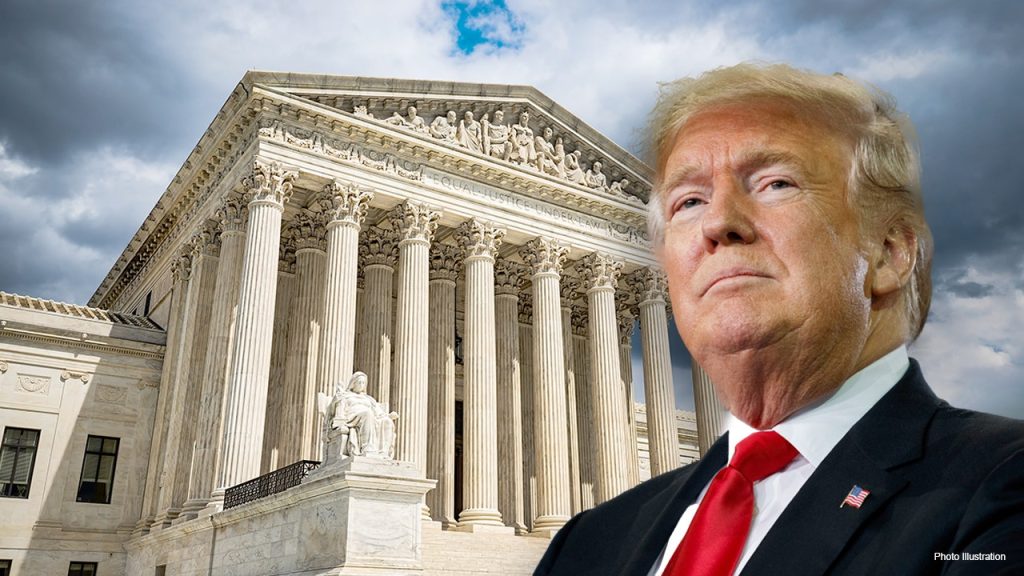The recent Supreme Court case regarding birthright citizenship has stirred significant discussion, particularly following comments from former President Donald Trump. Arguing via social media, Trump asserted that the 14th Amendment, which grants citizenship to individuals born on U.S. soil, was designed to protect the descendants of slaves rather than those migrating illegally to the country. As the justices deliberate on the matter, the implications of their decision could reshape immigration policy in the United States.
| Article Subheadings |
|---|
| 1) Understanding Birthright Citizenship |
| 2) The Supreme Court Hearings |
| 3) Trump’s Perspective on the Issue |
| 4) Legal Implications and Challenges |
| 5) Future of Birthright Citizenship in America |
Understanding Birthright Citizenship
Birthright citizenship in the United States is primarily governed by the 14th Amendment, ratified in 1868. This amendment states that all persons born or naturalized in the U.S. are citizens. Historically, the law was enacted to ensure citizenship for formerly enslaved individuals and their descendants following the Civil War. The 14th Amendment was crucial in affirming that citizenship cannot be denied based on race or ethnicity. Over the years, however, the interpretation of this amendment has been a topic of heated debate, particularly concerning undocumented immigrants.
The Supreme Court Hearings
On May 14, 2025, the Supreme Court convened to hear oral arguments concerning challenges to the birthright citizenship interpretation. Legal representatives presented differing viewpoints, and the justices probed these assertions closely. The atmosphere was charged, with passionate displays from advocates both for and against the continuation of birthright citizenship as it currently stands. The case arose from previous efforts by the Trump administration to revoke this status through executive order, which prompted lawsuits that have now reached the highest court in the nation.
Trump’s Perspective on the Issue
In his commentary, Trump maintained that the original intent of birthright citizenship was to support descendants of African Americans who had been enslaved, not to cater to individuals crossing into the United States illegally. He expressed concerns that the current interpretation disproportionately benefits those who may exploit the system, dubbing America “a STUPID Country” for allowing such loopholes. Trump’s statements highlighted his continual push against what he views as an abuse of the immigration system, arguing that the founding principles are being misapplied.
Legal Implications and Challenges
The implications of this case could be monumental, affecting how immigration policies are enforced in the U.S. Currently, lower federal courts can implement universal injunctions, which halt enforcement of executive orders at various levels. This has created a patchwork of legal challenges that could impact who is eligible for citizenship. The complexities of the case raise questions about the balance of power between the executive branch and the judiciary in shaping immigration policy. It has been highlighted that any ruling in favor of altering the current interpretation could open the floodgates to further litigation and unrest.
Future of Birthright Citizenship in America
As the Supreme Court deliberates, the future of birthright citizenship remains uncertain. A ruling could take time, with some legal experts predicting a decision could emerge weeks or even hours after the hearings. Critics warn that any change to the long-standing interpretation of the 14th Amendment could have far-reaching consequences for millions of individuals within the U.S. today. This case acts as a litmus test for how immigration policy will evolve under the current political climate, setting a precedent that could either strengthen or undermine existing protections.
| No. | Key Points |
|---|---|
| 1 | Birthright citizenship is rooted in the 14th Amendment, originally intended to protect descendants of slaves. |
| 2 | The Supreme Court is reviewing challenges to the interpretation of birthright citizenship amidst legal disputes. |
| 3 | Trump argues that the current law is being exploited by migrants and detracts from its original purpose. |
| 4 | Legal actions may determine how executive orders shape immigration policy and citizenship eligibility. |
| 5 | Future rulings may redefine the landscape of citizenship rights for millions of Americans. |
Summary
The ongoing Supreme Court case regarding birthright citizenship signifies a pivotal moment in U.S. immigration policy. With former President Trump’s assertive commentary underscoring the debate’s urgency, the justices’ final ruling could reshape citizenship definitions for generations. The implications will stretch beyond the courtroom, influencing public policy and the lives of countless individuals within the nation.
Frequently Asked Questions
Question: What is birthright citizenship?
Birthright citizenship is a legal right that grants citizenship to individuals born within the territory of the United States, as outlined in the 14th Amendment of the U.S. Constitution.
Question: Why is the Supreme Court reviewing birthright citizenship?
The Supreme Court is reviewing the case to address challenges against executive actions taken by former President Trump, which aimed to redefine the interpretation of the 14th Amendment concerning citizenship rights.
Question: What are the potential outcomes of the Supreme Court’s decision?
The outcomes could include a reaffirmation of current laws, a change in interpretation affecting citizenship for children born to undocumented immigrants, or a broader legal framework shaping future immigration policies.


